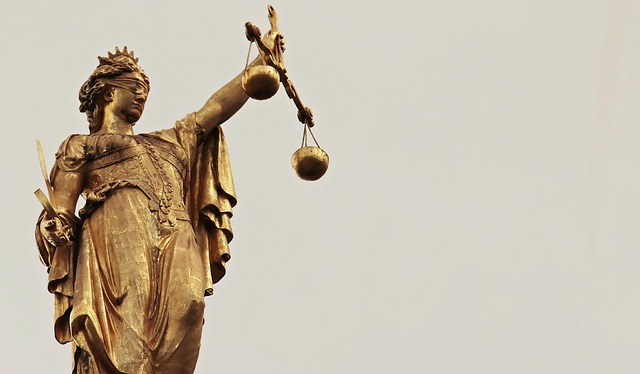Class action lawsuits significantly impact companies, especially in environmental cases, by consolidating affected parties to scrutinize polluters' actions and consequences. A history of successful prosecutions has driven corporate transparency and accountability. These suits offer communities a collective voice against powerful entities, ensuring legal recourse and sending a stark message of non-tolerance for negligence. They bring attention to ecological atrocities, spark public debate, drive systemic change, set regulatory precedents, and encourage businesses to embrace sustainability as a strategic tool to avoid legal repercussions and public exposure. Historical cases like Love Canal have led to stringent environmental regulations and transparent corporate practices.
“Environmental Crime Trials delve into the legal battles where corporations face consequences for ecological damage. This article explores key aspects, starting with Uncovering Environmental Wrongdoings from a legal standpoint. We examine the power of Class Action Lawsuits as a tool to hold companies accountable and their significant impact of class action lawsuits on companies. Historical cases shed light on regulatory changes, emphasizing the importance of corporate responsibility and transparency in environmental protection.”
- Uncovering Environmental Wrongdoings: A Legal Perspective
- Class Action Lawsuits: Power to Hold Companies Accountable
- Impact on Corporate Responsibility and Transparency
- Historical Cases and Their Effect on Regulatory Changes
Uncovering Environmental Wrongdoings: A Legal Perspective

Uncovering environmental wrongdoings often requires a meticulous legal approach, especially when dealing with complex and far-reaching crimes. Class action lawsuits play a pivotal role in this process, providing a powerful tool to hold companies accountable for their environmental transgressions. These high-stakes cases bring together a large number of affected parties, allowing for a comprehensive examination of the impact caused by polluters.
When faced with such legal actions, companies must consider the potential consequences and the impact on their respective businesses. An unprecedented track record of successful prosecutions has set precedents, demonstrating that environmental crimes cannot go unpunished. This has encouraged a more transparent and responsible approach from corporations, knowing that their actions are under constant legal scrutiny.
Class Action Lawsuits: Power to Hold Companies Accountable

Class action lawsuits have emerged as a powerful tool to hold companies accountable for environmental crimes, providing a collective voice to affected communities. Unlike individual suits, class actions encompass a broader scope, allowing multiple plaintiffs to unite and amplify their impact. This strategic approach not only ensures legal recourse for victims but also sends a stark message to corporations: negligence will not be tolerated. By pooling resources and sharing legal expenses, affected individuals can challenge powerful entities, making environmental justice more accessible.
The impact of these lawsuits extends far beyond financial compensation. They bring much-needed attention to ecological atrocities, spark public debate, and drive systemic change. As these cases navigate through various stages of the investigative and enforcement process, they set precedents that influence regulatory frameworks and business practices. Furthermore, the involvement of philanthropic and political communities in supporting such initiatives can lead to long-lasting environmental stewardship and deter future transgressions.
Impact on Corporate Responsibility and Transparency

The rise of environmental crime trials has significantly shifted the landscape of corporate responsibility and transparency. As more cases make their way to court, businesses are finding themselves under increased scrutiny for environmental misconduct. The impact of class action lawsuits plays a pivotal role in this shift, compelling companies to reevaluate their practices and prioritize sustainability. When faced with legal repercussions and public exposure, organizations must actively work towards avoiding indictment by implementing robust environmental policies and disclosure practices.
This new era of accountability encourages businesses to embrace transparency as a strategic tool. By openly addressing past mistakes and taking proactive measures to mitigate future risks, companies can foster trust among stakeholders, including investors, customers, and communities. The potential for achieving extraordinary results through improved corporate governance and environmental stewardship is evident. Ultimately, this shift reflects a broader societal demand for responsible business conduct and sustainable practices in the respective business sectors.
Historical Cases and Their Effect on Regulatory Changes

Historical cases of environmental crime have left a profound impact on regulatory changes worldwide. High-profile trials, such as the 1980s love canal case in the U.S., where toxic waste disposal led to severe health issues, sparked public outrage and resulted in stringent environmental regulations. These landmark cases not only held companies accountable for their actions but also set precedents for future legal battles. The impact of these trials extended beyond punishment; they catalyzed a shift towards more transparent corporate practices and stronger environmental protection laws.
The success of class action lawsuits has been instrumental in shaping the approach to white-collar and economic crimes. Through these collective legal actions, victims have achieved extraordinary results, winning challenging defense verdicts that not only compensated affected communities but also sent powerful messages to corporations. This strategy has demonstrated the potential for holding large entities accountable for environmental degradation, fostering a culture of corporate responsibility and ensuring that historical cases serve as cautionary tales for future misconduct.
Environmental crime trials, as highlighted by historical cases and the evolving legal landscape, underscore the importance of accountability and transparency in business practices. The impact of class action lawsuits has been profound, empowering communities to hold companies responsible for environmental wrongdoings. This collective action not only serves justice but also drives necessary changes in corporate responsibility, fostering a more sustainable future. By examining past successes and lessons learned, we can navigate the intricate legal labyrinth to ensure that environmental crimes are met with swift and effective consequences, ultimately revolutionizing business conduct.






